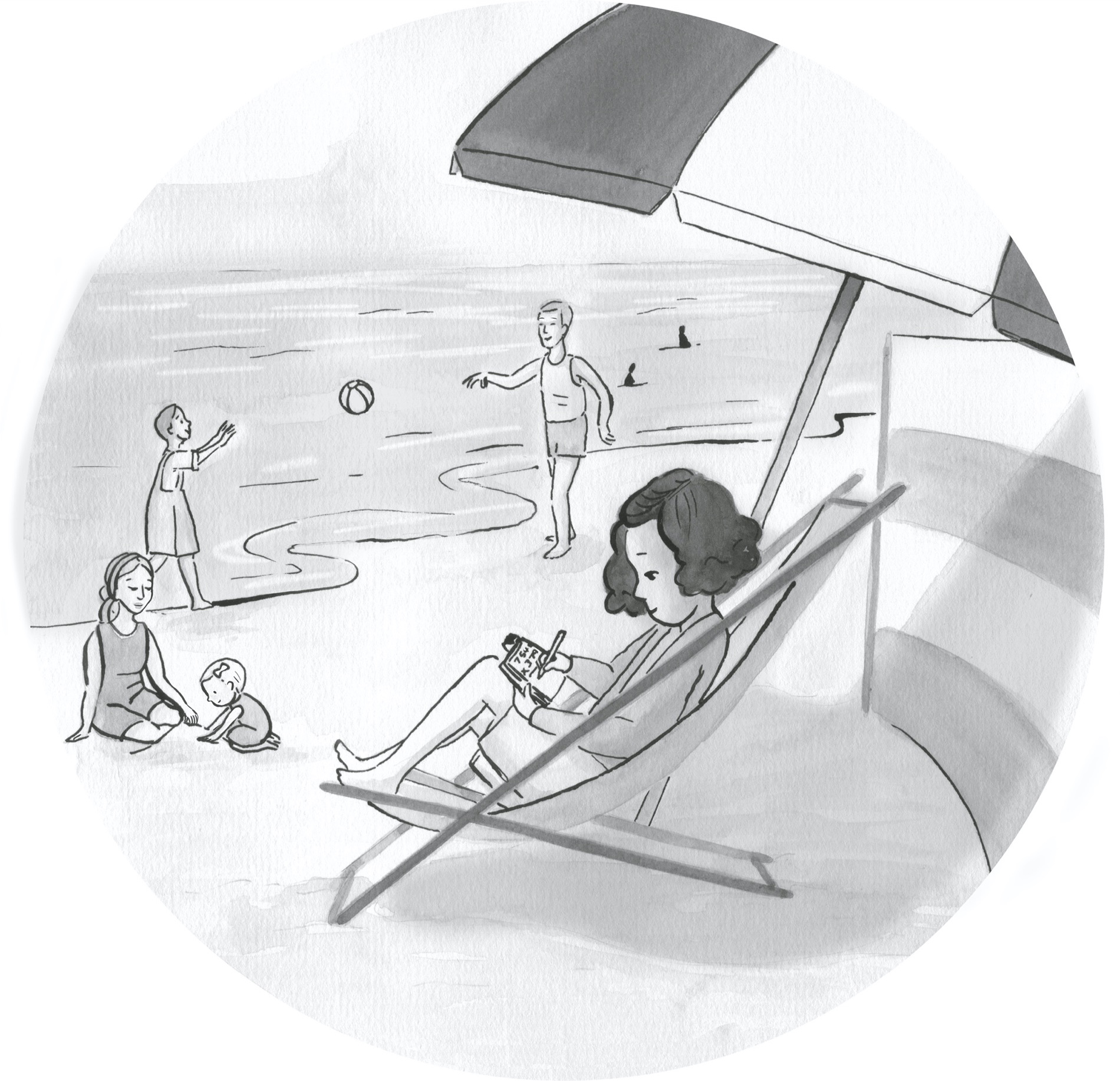PHILOMEL BOOKS
An imprint of Penguin Random House LLC, New York
First published in the United States of America by Philomel Books,
an imprint of Penguin Random House LLC, 2022
Text copyright 2022 by Chelsea Clinton
Illustrations copyright 2022 by Alexandra Boiger
Penguin supports copyright. Copyright fuels creativity, encourages diverse voices, promotes free speech, and creates a vibrant culture. Thank you for buying an authorized edition of this book and for complying with copyright laws by not reproducing, scanning, or distributing any part of it in any form without permission. You are supporting writers and allowing Penguin to continue to publish books for every reader.
Philomel Books is a registered trademark of Penguin Random House LLC.
Visit us online at penguinrandomhouse.com.
Library of Congress Cataloging-in-Publication Data is available.
HC ISBN 9780593402979
PB ISBN 9780593402993
Ebook ISBN 9780593402986
Edited by Talia Benamy and Jill Santopolo.
Cover art 2017 by Alexandra Boiger
Design by Ellice M. Lee, adapted for ebook by Michelle Quintero
The publisher does not have any control over and does not assume any responsibility for author or third-party websites or their content.
pid_prh_6.0_141983183_c0_r0
 To
To 
Dorothy Hamilton, Sharon Palmer, and Virginia White, the chemistry professors at Smith College whom I studied under. Thank you!
Dear Reader,
As Sally Ride and Marian Wright Edelman both powerfully said, You cant be what you cant see. When Sally said that, she meant that it was hard to dream of being an astronaut, like she was, or a doctor or an athlete or anything at all if you didnt see someone like you who already had lived that dream. She especially was talking about seeing women in jobs that historically were held by men.
I wrote the first She Persisted and the books that came after it because I wanted young girlsand children of all gendersto see women who worked hard to live their dreams. And I wanted all of us to see examples of persistence in the face of different challenges to help inspire us in our own lives.
Im so thrilled now to partner with a sisterhood of writers to bring longer, more in-depth versions of these stories of womens persistence and achievement to readers. I hope you enjoy these chapter books as much as I do and find them inspiring and empowering.
And remember: If anyone ever tells you no, if anyone ever says your voice isnt important or your dreams are too big, remember these women. They persisted and so should you.
Warmly,
Chelsea Clinton
She Persisted: MARIAN ANDERSON
She Persisted: VIRGINIA APGAR
She Persisted: NELLIE BLY
She Persisted: RUBY BRIDGES
She Persisted: CLAUDETTE COLVIN
She Persisted: ROSALIND FRANKLIN
She Persisted: TEMPLE GRANDIN
She Persisted: FLORENCE GRIFFITH JOYNER
She Persisted: HELEN KELLER
She Persisted: CORETTA SCOTT KING
She Persisted: CLARA LEMLICH
She Persisted: MAYA LIN
She Persisted: WANGARI MAATHAI
She Persisted: WILMA MANKILLER
She Persisted: PATSY MINK
She Persisted: SALLY RIDE
She Persisted: MARGARET CHASE SMITH
She Persisted: SONIA SOTOMAYOR
She Persisted: MARIA TALLCHIEF
She Persisted: DIANA TAURASI
She Persisted: HARRIET TUBMAN
She Persisted: OPRAH WINFREY
She Persisted: MALALA YOUSAFZAI
TABLE OF CONTENTS
chapter 1
A Curious Child
From the very start, Rosalind Franklin loved to figure things out. She loved word puzzles. She loved the memory games her father played with her and her older brother. She loved arithmetic, so much so that when she was six years old and her family went on a vacation to the seashore, she spent her free time on the beach with a paper and pencil, writing out math problems and solving them.
Rosalind was born on July 25, 1920, to a well-off family in London, England. She had an older brother; later, she would have two younger brothers and a younger sister. Rosalinds parents loved each other and their children very much, though they werent the kind of family that hugged and kissed very often. Instead they took hikes together, played games, and worked together to support ideas that were important to them.
When he was growing up, Rosalinds father had wanted to study science at either Oxford or Cambridge, Englands oldest and most well-known universities. But World War I started just before he would have enrolled. Instead of becoming a student, Ellis Franklin joined the army and fought for his country. By the time the war was over, he had a wife and a son, and he decided it was too late for him to go back to school. Instead he worked at the merchant bank his family ran. He still loved science, and he loved to help people. Several nights a week, he taught classes in electricity and magnetism at the Working Mens College in London, a school for older adults.
Rosalind and her family were Orthodox Jews. At that time most people in England were Christians. Many people were prejudiced against Jews. They treated them unfairly because they were different. Prejudice against Jewish people is called antisemitism. Among other things, antisemitism in England meant that Jewish people usually werent appointed to high positions in government or education. Rosalinds family broke some of these antisemitic barriers. One of her great-grandfathers was the first Jewish professor at an English university. Her fathers uncle was the first Jew to serve on Britains Cabinet, and Rosalinds own uncle was attorney general of the British mandate of Palestine. When Adolf Hitler rose to power in Nazi Germany during the 1930s and began terrorizing German Jews, Rosalinds family helped many of them escape to England and start new lives there. Still, even though Rosalinds family held important positions and did good things, many people disliked them just because they were Jews.
When Rosalind grew older, she decided that while she believed in God as a creator, she didnt believe in the parts of religion that didnt sound logical or concrete to her. Rosalind liked logic and concrete answers. But being Jewish was always important to her. She loved the traditions she grew up with. She also always felt that being Jewish meant she had an obligation to live a good life and contribute to creating a better world.
Rosalind and her siblings had a nanny (they called her Nannie) to help feed them and dress them and take them to the park every day. There were other people who worked for her family, who cooked meals, did laundry, and cleaned their home. Rosalinds grandparents had a large home in the countryside, with a croquet lawn and tennis courts, and Rosalind often spent time with her cousins there. The first years of Rosalinds life were surrounded by luxury, comfort, and love.

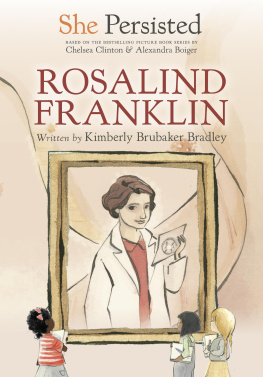
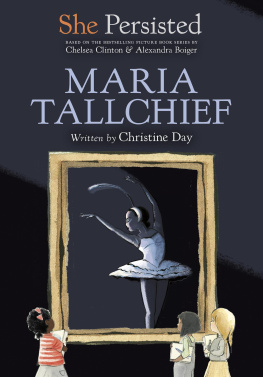
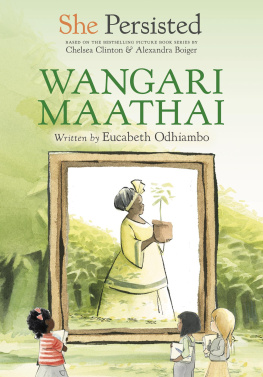
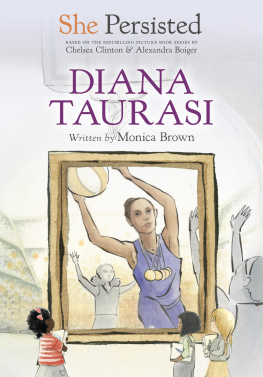
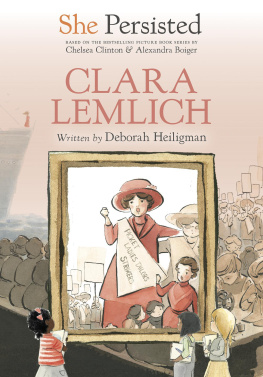
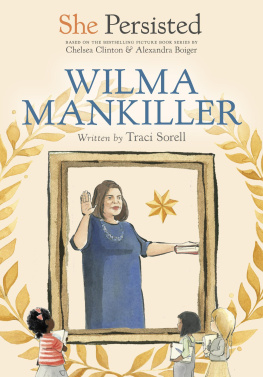
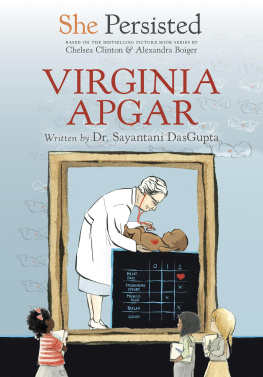
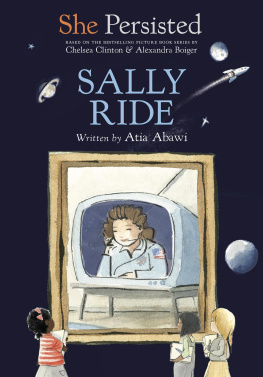
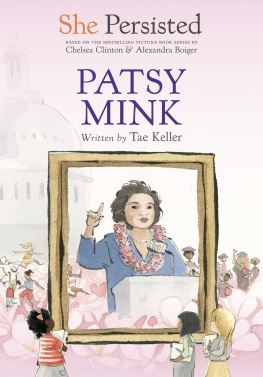
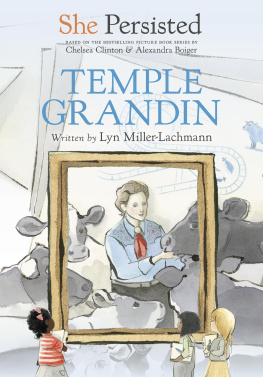
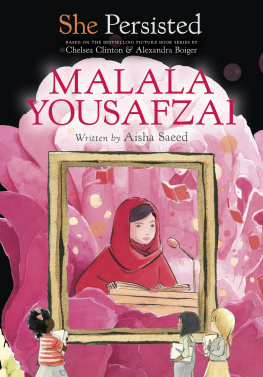
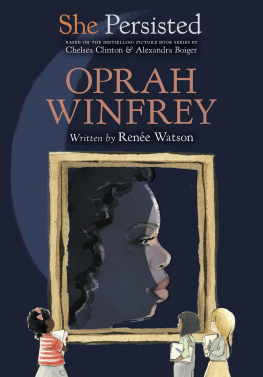
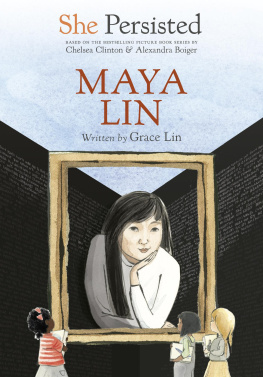
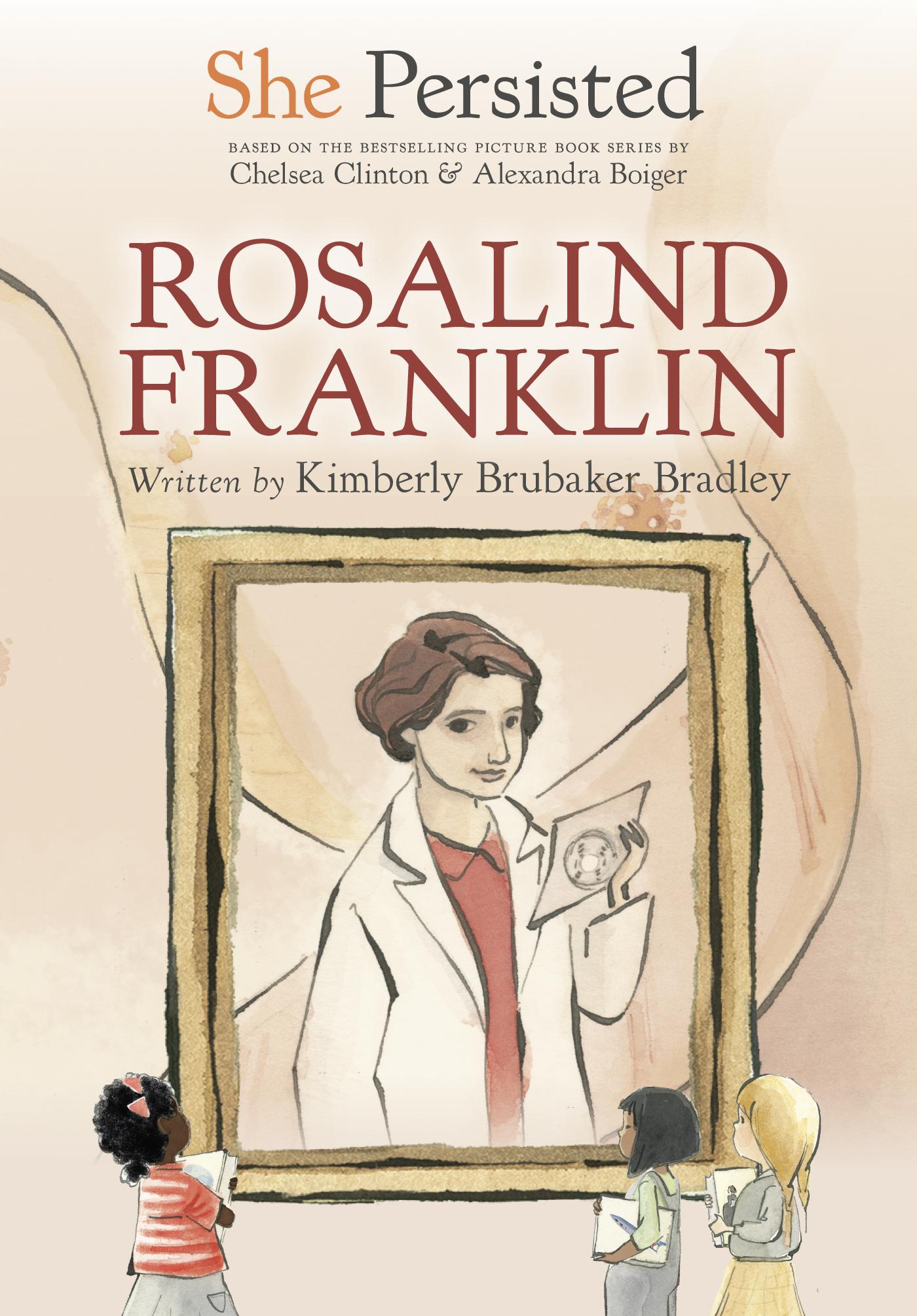
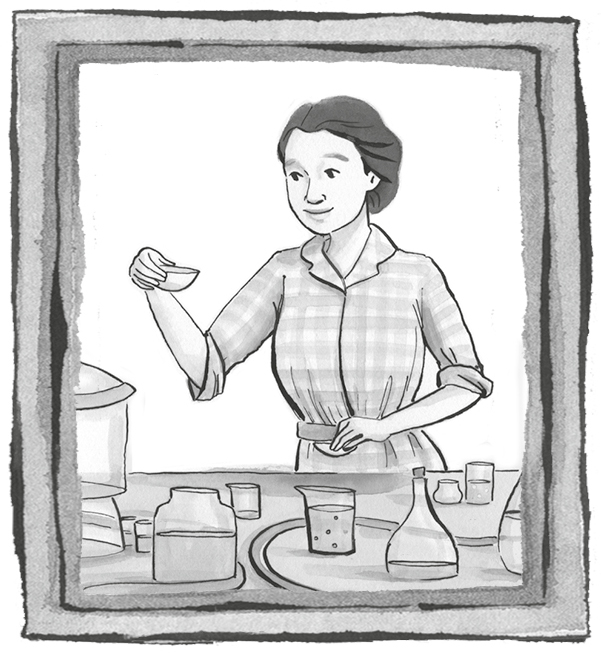
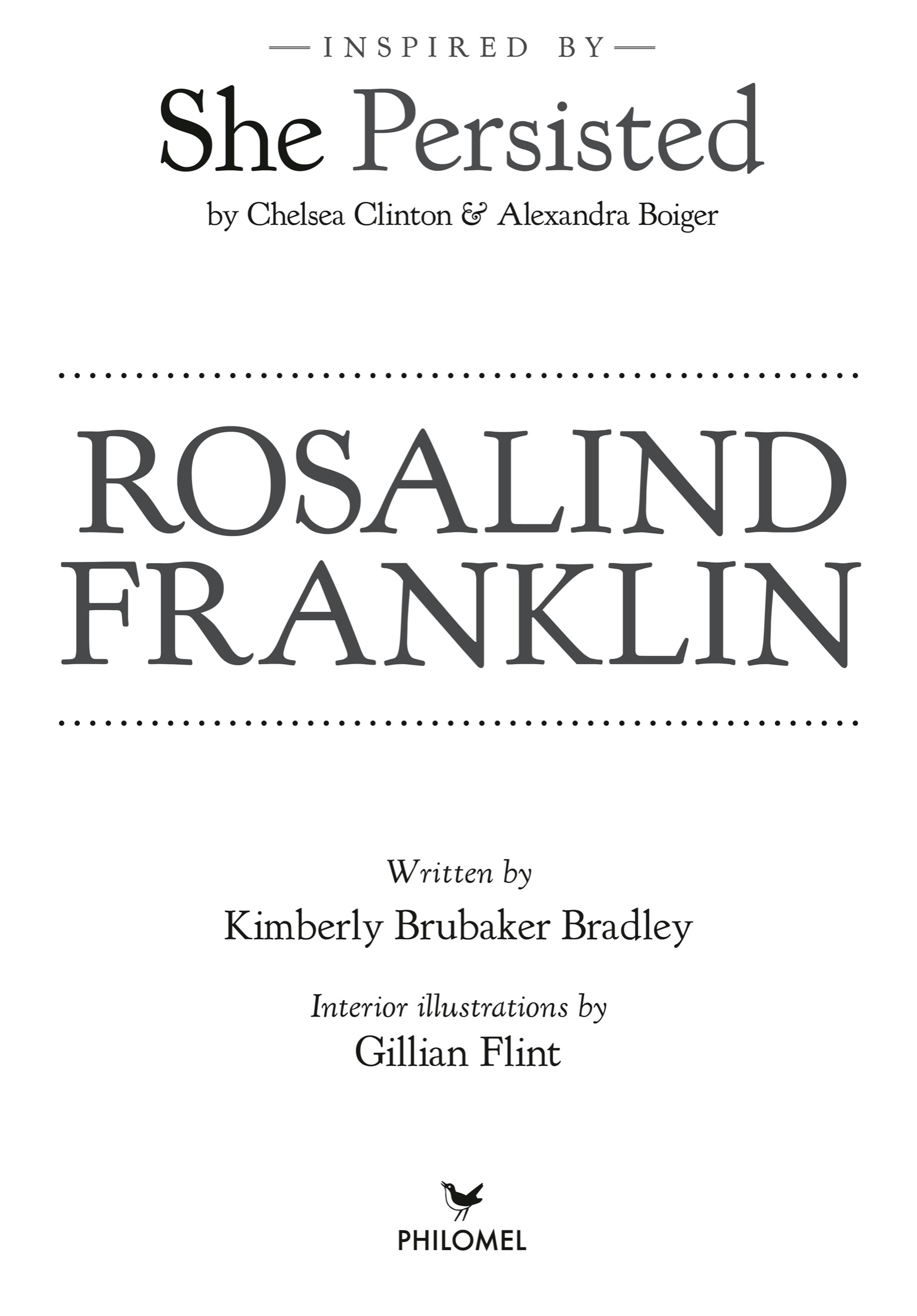

 To
To 

